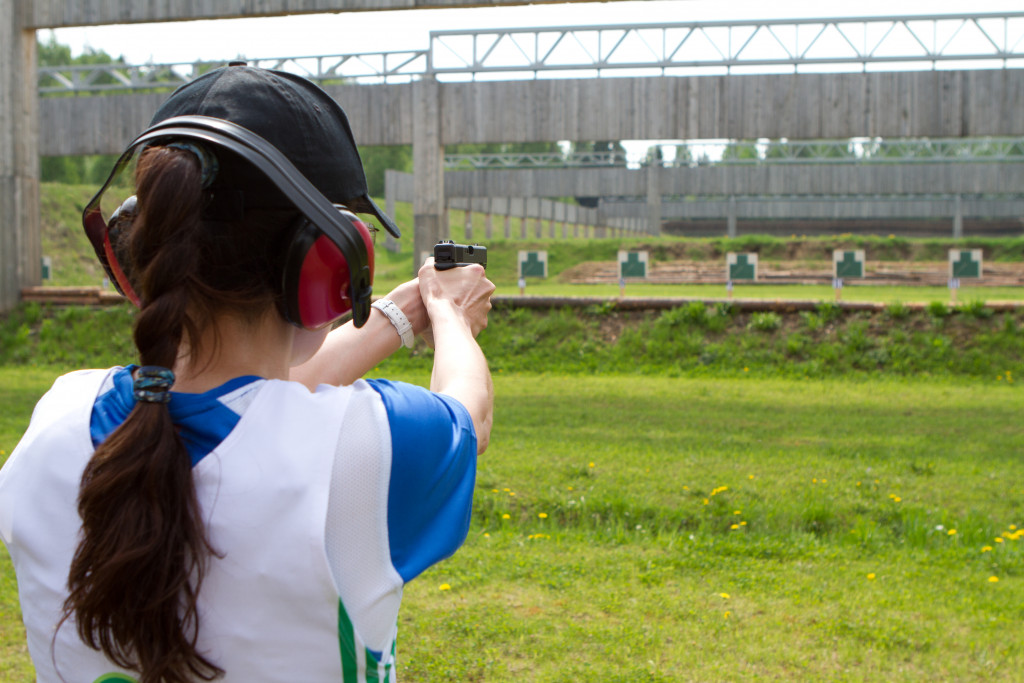- Firearm-related crime has been steadily increasing, with 13% of all deaths in the US due to gun violence.
- Exposure to gun violence can lead to decreased quality of life and long-term psychological impacts.
- Firearm safety training is essential for responsible gun ownership and preventing accidents.
- Gun stores should have policies for verifying customer identity, background checks, and inventory management systems.
- Emergency response plans are essential for ensuring staff and customer safety in all establishments.
The prevalence of gun violence in communities worldwide is a growing concern. Research indicates that gun-related crime has steadily increased over the past decade, with no signs of slowing down. According to a study by the Centers for Disease Control and Prevention (CDC), there were 39,773 deaths due to firearm-related injuries in the United States alone. This accounts for nearly 13% of all injury-related deaths.
When broken down by region, studies have found that gun-related crimes tend to be concentrated in certain parts of the country. For example, states like Alaska, Louisiana, and Mississippi consistently rank among the highest gun violence per capita rates. In many cases, this can be attributed to an influx of illegal guns into their respective communities and increasing levels of gang activity within them.
In addition to causing death and injury, gun violence can lead to decreased quality of life for affected community members. The fear associated with frequent outbreaks of gun violence often leads to people avoiding public spaces or participating in activities they once enjoyed – putting further strain on struggling populations. Furthermore, research suggests that exposure to this type of trauma can have long-term psychological impacts on individuals and whole communities.
As a community leader or a gun store owner, educating people about gun safety might be essential. Here are a few steps to consider when teaching about gun safety:
Firearm Safety Training

Firearm safety training is an essential component of responsible gun ownership. Anyone who owns or intends to own a firearm must understand how to use it safely and responsibly. Firearm safety training courses provide the knowledge and understanding necessary to operate firearms safely.
Firearm safety training courses can help gun owners become proficient with their weapons and understand the legal and ethical considerations associated with them. Gun safety courses may include topics such as proper storage, handling, maintenance, and cleaning of firearms, basic marksmanship skills, identification of ammunition types, and safe practices for transporting firearms. Such courses can help ensure that gun owners are aware of local laws about guns and hunting regulations. They also provide essential information about gun control measures, such as waiting periods for purchasing firearms and background checks for purchasers.
In addition to promoting personal safety, firearm safety training can also help prevent accidental deaths from shootings due to a lack of knowledge or understanding about the weapon’s capabilities. For example, unintentional shootings account for almost a third of all gun-related deaths in the United States each year — most often occurring in homes without access to trained professionals or appropriate guidance on firearm safety.
Gun Store Responsibility

Gun stores might be the first line of defense for preventing gun violence. Gun store owners should take extra steps to ensure that those who purchase firearms do so in a responsible manner and are knowledgeable about the dangers associated with them. Here are a few to consider:
Store security
Security systems like cameras and alarms are essential for preventing theft and ensuring that firearms are not in the wrong hands. Additionally, gun stores should have policies for verifying purchasers’ identity and age and a system for tracking serial numbers of purchased firearms.
Background checks
Before any firearm can be sold, the customer must pass a background check to ensure they meet the legal requirements set forth by state or federal law. This helps prevent those with criminal records from obtaining guns illegally.
Background checks should also include inquiring about mental health conditions such as depression, anxiety, or substance abuse — which could indicate potential danger if the person owns a firearm.
Inventory management
Gun stores should also have an inventory management system to ensure that firearms are not diverted to illegal markets. An effective inventory system can help store owners track the flow of guns in and out of their shop and alert them to any suspicious activity or potential sales to prohibited purchasers.
Insurance policies
Gun stores might require partnerships with a reliable gun store insurance agency to cover loss or damage due to theft, fire, or other disasters. This can provide additional peace of mind for store owners and customers alike.
Emergency Response
Finally, gun stores should have an emergency response plan to ensure staff and customers’ safety is the priority. This includes having a designated safe area for employees or customers to take cover if there is a threat of violence or danger in the store.
Every other establishment, like schools and churches, should also have emergency response plans for dealing with gun violence. You can work with local officials and the police department to develop a plan tailored to your community’s needs.
Final Thoughts
Teaching about gun safety and taking steps to ensure responsible ownership of firearms can help prevent gun-related tragedies in our communities. As a responsible community leader or gun store owner, you must promote education and personal responsibility regarding guns. With the proper knowledge, you can make a difference.











